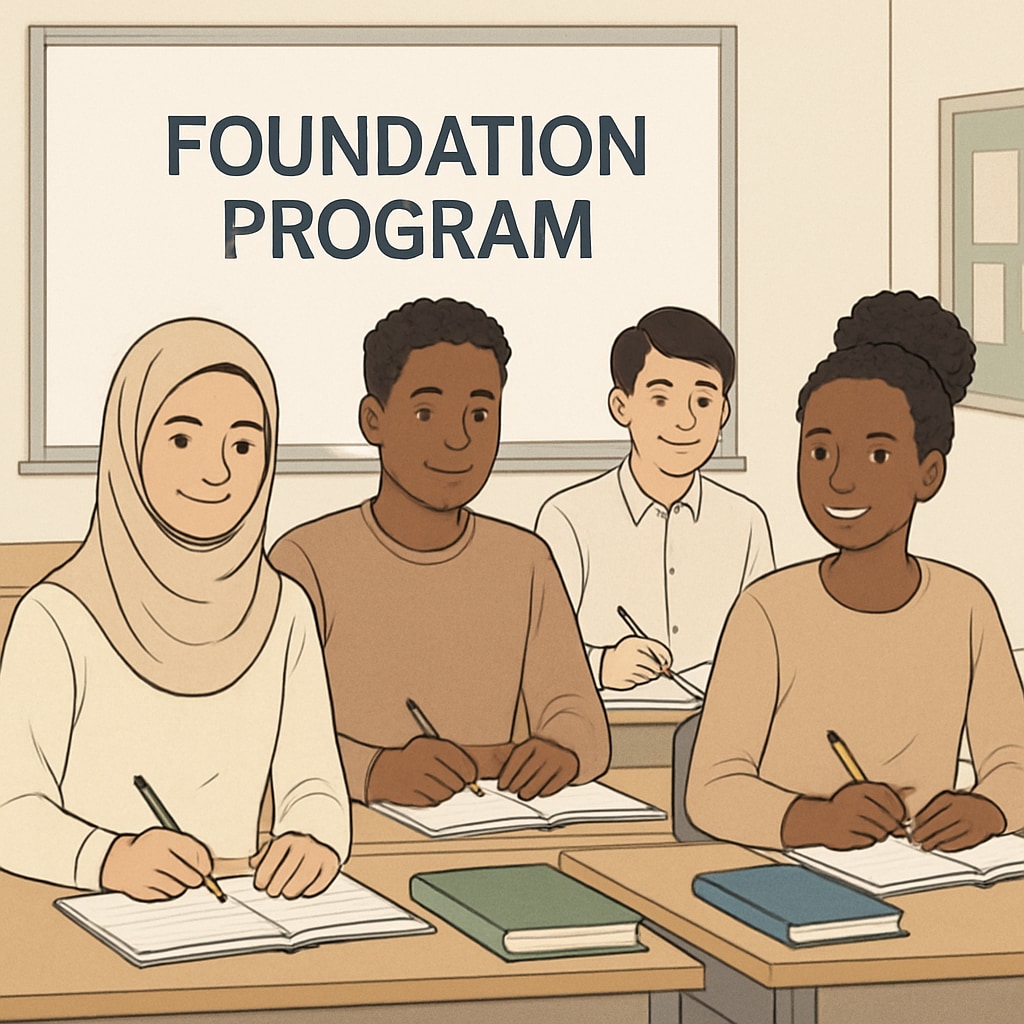For many students, the results of their A-Level exams play a pivotal role in shaping their academic and career trajectories. However, not everyone achieves the results they hoped for. When faced with setbacks, students often find themselves at a crossroads, having to decide between retaking their A-Level exams, enrolling in a lower-ranked university, or pursuing an international foundation program. Each of these paths has its own advantages and challenges, and the decision can be overwhelming. This article aims to provide a balanced analysis of these options to help students make informed choices and turn setbacks into opportunities.
Retaking A-Levels: A Second Chance
Choosing to retake A-Level exams is often the first option that comes to mind for students who narrowly missed their desired grades. This path offers students a second chance to improve their scores and potentially secure admission to their preferred universities. Retaking exams can be particularly appealing for those who feel their initial performance was hindered by temporary challenges, such as illness, personal issues, or lack of preparation.
However, this option also comes with its challenges. Retaking exams requires a significant time commitment, often delaying university enrollment by at least a year. Additionally, the pressure to perform better the second time around can be overwhelming. Students must weigh whether they have the resilience and resources to dedicate another year to intense study.

Enrolling in Lower-Ranked Universities: A Practical Alternative
Another option is to accept offers from universities with lower entry requirements. This path allows students to move forward without delay, gaining access to higher education and beginning their academic journey. While lower-ranked universities may not have the prestige of top-tier institutions, they often provide quality education and opportunities for personal growth.
Moreover, students who excel in these environments can transfer to higher-ranked universities later or leverage their achievements to build strong career profiles. However, this choice requires students to carefully research the universities and programs they are considering. Factors such as course content, faculty expertise, and campus resources should be evaluated to ensure the institution aligns with their goals.
International Foundation Programs: A Gateway to Global Opportunities
For students open to studying abroad, international foundation programs offer a unique opportunity. These programs, often hosted by universities in countries like the UK, the US, or Australia, are designed to bridge academic gaps and prepare students for undergraduate studies. They typically include subject-specific courses, language training, and cultural orientation, helping students adapt to the academic standards of their chosen destination.
The benefits of international foundation programs extend beyond academics. Students gain exposure to diverse cultures, build global networks, and develop skills that enhance their employability. However, the financial cost of studying abroad can be a significant consideration. Additionally, students must be prepared to navigate the challenges of living in a new country, such as adapting to different cultural and academic expectations.

Making the Right Choice: Key Considerations
When deciding on the best path forward, students should consider several factors:
- Personal Goals: Reflect on long-term aspirations and how each option aligns with these objectives.
- Financial Resources: Evaluate the cost of each option, including tuition fees, living expenses, and potential financial aid.
- Support Systems: Assess the availability of academic and emotional support for each path.
- Academic Readiness: Consider whether you are prepared to retake exams or adapt to a new academic environment.
Ultimately, there is no one-size-fits-all solution. Each student’s situation is unique, and the best choice will depend on individual circumstances and priorities.
Turning Setbacks into Growth Opportunities
Experiencing setbacks can be disheartening, but it is important to view them as opportunities for growth. The process of evaluating education options, making tough decisions, and adapting to new challenges builds resilience and self-awareness—qualities that are invaluable for future success. Whether you choose to retake A-Levels, enroll in a lower-ranked university, or pursue an international foundation program, remember that your journey is not defined by a single exam result. With determination and careful planning, you can create a fulfilling and successful academic and career path.
For further guidance, consider exploring resources such as the A-Level overview on Wikipedia or the higher education entry on Britannica. These resources provide additional insights to support your decision-making process.


